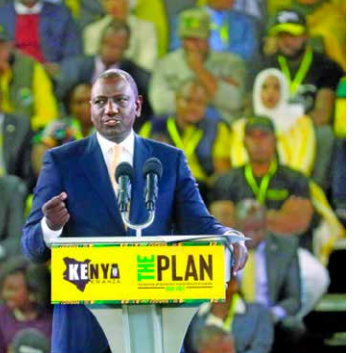Broken Kenya Kwanza promises: Impact of lifting price subsidies on cost of living and economic growth

Price subsidies are not long-term solutions to social protection. The Kenya Kwanza administration has been eliminating most of the subsidies that were introduced by former President Kenyatta’s administration such as electricity, fuel and maize price subsidies. President William Ruto’s administration’s rapid elimination of the price subsidies has been argued to be a move necessitated by the need for economic growth.
Electricity charges
The government is set to again remove electricity subsidies once the Energy Petroleum and Regulatory Authority approves the review of electricity tariffs in March 2023. Review of tariffs is done every three years with the last review having been done in 2018 where former President Kenyatta ordered for a price subsidy to cushion consumers and businesses. The revised tariffs in 2018 were to apply for one year up to June 2019, with a further review in January 2022 for a 15% reduction to apply for one year. The reduced electricity charges led to an increase in household electricity connections which was supported by the Last Mile Connectivity programme, but consequently increased operational costs for Kenya Power which worked in reverse by connecting electricity then following up on connection charges.
Kenya Power’s proposed tariffs seek to revise the Life-Line consumption band for both Small Commercial and Domestic Customers from the current 100kWh/month to 30kWh/month. Domestic consumers not exceeding consumption of 30kWh/month will pay KES 14.0 per unit up until July 2025 from a constant rate of KES 10.0. For consumption exceeding 30kWh/month, domestic consumers will have to pay KES 21.68 with the price set to drop to KES 20.30 in July 2025. This will align the objectives of the lifeline/social tariff customer category with the correct social class normally defined by level of income. For commercial businesses the price per unit will increase from KES 10.1 to KES 13.90 set to reduce to KES 13.01 in 2025.
Water charges
Increase in electricity charges will further increase the already crippling cost of living, a situation further exacerbated by the proposed increase in water charges. The Water Resources Authority 2021 Regulations began operationalization on February 3, 2023. The Regulations provide that the Water Resources Authority shall adjust the water use charges annually in order to give effect to the annual inflation index. The adjustment of water charges will be based on any significant increase in the cost of regulating the water resources and the facilitation of water resources to meet demand among others. Domestic water use is now charged at KES 5/m3 from KES 0.50 cents, whereas commercial use is charged at first 300 m/day at 5 KES/m3 and over 300 m/day at 6 KES/ m3.
The government needs to reach a compromise between rapid elimination of subsidies that provide for national budget savings and protecting Kenyans from the adverse impact on cost of living. While there is need for adjustment of charges, the government needs to be cognizant that cost increase of such essential commodities will further increase cost of living, hence slowing economic growth. The government during the election period made promises towards improving cost of living by providing better services to Kenyans on these essential commodities.
The Kenya Kwanza manifesto makes a recognition of the disruptive technology landscape that portends transformation of the electricity industry on a small scale to lower the cost of renewable energy. To this end, the administration made a commitment to improve the transmission and distribution network and accelerate geothermal resources development. In terms of water infrastructure, the government recognized that the main issue was finances which are needed to shift focus from large dams to household/community water projects, with emphasis on harvesting and recycling and adopting Private Public Partnerships where large reservoirs are concerned.
It is important for the government to recognize that increasing charges of commodities essential for production of commercial businesses and industries will lead to an unexpected cost of production especially in the case of the Water Regulations that were established in 2021. These businesses are critical drivers in economic growth and key partners with the government in providing certain facilities to Kenyans. An industry faced with increased cost of production will make little profits that will not make it possible for investments in technology needed for electricity transmissions or community water projects that will improve access to water.
There is a need for policies that especially recognize industries that are large consumers of such commodities and offer tax relief to their costs of production. The government can also encourage innovative investments by the private sectors through tax incentives to enable such industries to develop necessary technology such as IoT and smart devices in generating electricity. Such industries will thus be able to partner with the government in driving its agenda while at the same time providing essential commodities to low-income households.
Additionally, the government should consider gradual elimination of subsidies by limiting price subsidies to a subgroup of the population; through efficient targeting and selection of the subgroup. The gradual elimination will lead to minimal social disruption in terms of cost of living and budget savings.

